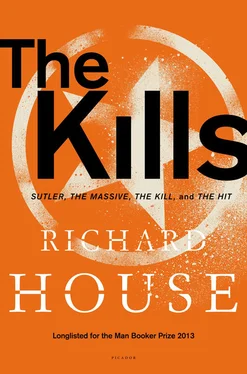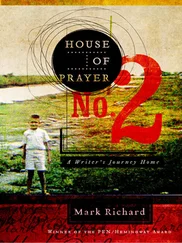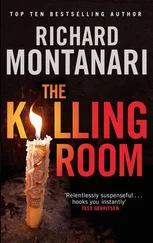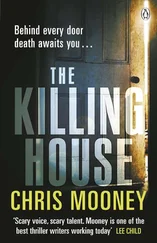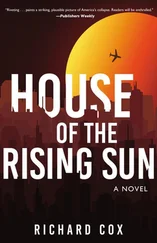The sun hit fiercer here than inland, hard on the water and stripped to a steely light. He noted the shops beside him, painted white, the restaurants and boutiques, a hairdresser, a clapboard market with signs for cola, ices, thick-crust pizza, burgers, designer clothing; the entire boardwalk appeared over-familiar.
The police lined the balcony of the self-catering hotel and chivvied the guests off the balconies and out of neighbouring suites. Armed militia stopped the traffic from entering the promenade. Tourists hung about the poolside to watch: attention zeroed to Room 42.
The event played out modestly. The door opened to a simple knock to show a man, a giant, dressed in brown plaid shorts and white socks, his gut pushing over his belt. With his hands raised the man filled the doorway — and it was obvious to Parson, even from a distance, that this could not be Sutler: having no hair in the first instance, and being in any case so grossly oversized that imagining him walking through the mountains just didn’t work.
Parson came out of the car wanting the whole show over, aware of the hours ahead returning to Kopeckale and the explanation he would have to make to Gibson. No, he waved, then shouted, ‘No, no, no, no, no. Stop this. Let the man go.’
Out of the room, shimmying from behind the giant as if dividing from him, appeared two women in swimsuits, both young, then two more, and two more to total six. The man stood with his hands held up, his head hung hangdog, a picture of shame. The police, visibly confused, gathered up the women, and worked the man out of the doorway with their sticks, a little bemused by an event which had every appearance of a magician’s act: a fat man sub-dividing into six pretty women. ‘Exactly what is this?’ Parson asked the man as he approached. ‘What is this?’
* * *
The calls started as soon as he returned to the car. Expecting Gibson, Parson was surprised to find himself speaking with Paul Geezler. He recognized the name from conversations with Gibson, and thought it strange that the new head of HOSCO operations in the Middle East would bother with a direct call. Not for the first time he sensed a perspectival shift as his idea of the damage caused by Sutler broadened.
Geezler introduced himself as the man assigned to pick up the pieces.
Parson leafed quickly through his papers but could not find his notes on Sutler at HOSCO.
Geezler explained that he had just arrived at Southern-CIPA and was familiarizing himself with everything undone since Howell’s arrest, although no one seemed happy to share information with him. ‘These days,’ he said, ‘I talk mostly to myself.’
Southern-CIPA, Geezler hinted, would be disassembled and reconfigured. He was working directly with them, which is how it should have been all along. If HOSCO had kept a tighter eye on the finances, especially the distribution, then it wouldn’t have gone so haywire so quickly. ‘Independent companies are more responsible when it comes to monitoring. We all know that. That’s nothing new. With Southern-CIPA it was always too complicated, all of these processes which were just too much of a mystery,’ Geezler explained, weary of it. ‘Truth is, we’re the victims here, of a government that has no stop checks, and of a system which leaves the financial distribution down to just one man. Where else would you find that? I’m not naive, we need to put our hands up and admit we’re vulnerable to any individual who wants to abuse us. Sutler took us for a long ride. I’ll admit that. I’ll be the first. There’s work to do to make sure this doesn’t happen again. But my main duty is to make sure that HOSCO has some place in the reorganization, in whatever comes next, but it looks like the damage is going deep.’ Camp Liberty was already dismantled, and even as they spoke, the burn pits were being bulldozed. ‘The Massive is over.’ Geezler faced a winter of hearings, suits, and litigation. ‘Job number one is to make sure we’re still a part of whatever develops here, and that we learn some serious lessons. Which is where you come in.’
Parson said it sounded complicated. Stuck on the notion that HOSCO found itself to be a victim.
‘I want news on Sutler. I want you to keep me informed on what you’re finding.’ Could he give him something this morning? Anything? One small thing? Was he close? ‘As soon as you find him we can start to close this affair.’
Sensing that Geezler would terminate the search if he had no results Parson said he was close, as in closer but not quite closing in. It would be better, he realized, to invent small details than disappoint the man.
‘But nothing new?’ Geezler spoke in a crisp, self-important tone Parson just didn’t like. ‘I have a lot of people to satisfy. I need information. You should know I have an announcement to make this morning.’
There was plenty Parson couldn’t say. Tourists spread along the coast from Antalya to Bodrum had reporting sightings of Stephen Sutler. The sighting in Marmaris was one such example. After Kopeckale, Sutler had left no direct trail. Dissatisfied, Geezler needled him for news. He must have something?
‘What level of detail do you want? He was sighted last night at a bar in the Hotel Cettia in Marmaris,’ Parson lied, not exactly a lie, but a statement which gave credence to something he knew not to be true. ‘It’s a confident sighting, but it doesn’t look like he took a room. There’s a taxi driver who brought him from the hotel back to the coach station. I’m confident I’ll find out where he’s gone.’
‘Confident?’
‘There are booking clerks, ticket offices, bus drivers. I’ll know when he was at the station and for how long. Finding out where he’s going won’t be difficult. My guess is he’ll steer away from the coast where he’s likely to be spotted and find some other way out of the country. But that’s a guess. I’ll have more concrete information this afternoon. I’ll know where he’s heading.’
‘There are things you should know.’ Geezler drew a deep breath. ‘We have a report on Howell’s office, and we’re revising the idea that the attack on Southern-CIPA came from the outside. It looks like Stephen Sutler was the source.’
Parson said he didn’t understand, and then the suggestion became clear: somehow Sutler was the cause of the assault. It sounded improbable and went against the evidence. Both Pakosta and Clark had witnessed the attack, and they had both described the mortar arcing down, the impact, the type of blast. They were unequivocal about the source. Howell’s evidence concurred. This was an outside attack. ‘Pakosta and Clark both saw the mortar. It’s in their statements. I don’t see why Sutler would do this?’
‘All of the accounts and records were kept in Howell’s office and they’ve all been destroyed. Pakosta and Clark are either mistaken or lying.’ There was evidence, Geezler explained, that the men at Camp Liberty had accepted money and gifts from Sutler — some of them had received goods, Breitling watches, others the payment of debts. Thanks to Sutler’s patronage they lived like kings. According to the evidence the damage to Howell’s office came from a device set inside the office. ‘It looks like Stephen Sutler was responsible.’
‘And Paul Howell? What does he say? Has anyone spoken with him?’
‘Howell isn’t a military man. He wouldn’t know a mortar attack from a grenade attack. He sat in the State Department for five years, in an office without windows. He rides a desk. He knows administration not armament.’
Parson found the printout of the Sutler lookalike. He held up the paper and examined the marks drawn by the German journalist, the cut under his right eye, the scratches across his forehead. If Sutler was responsible for the damage to Howell’s office, then he was responsible for Kiprowski’s death. He waited for Geezler to comment.
Читать дальше
